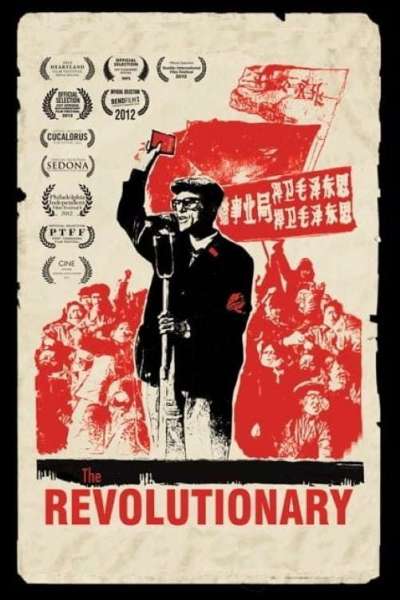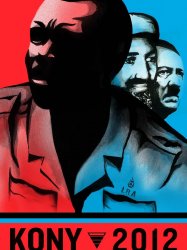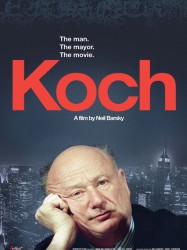The Revolutionary is a film of genre Documentary released in USA on 30 december 2011 with Jon Voight
The Revolutionary (2011)

If you like this film, let us know!
- Infos
- Casting
- Technical infos
- Photos
- Videos
- Film quotes
- Characters
- Music
- Awards
The Revolutionary is a 1970 political drama film directed by Paul Williams. The screenplay was written by Hans Koning (credited as Hans Koningsberger), based on his novel of the same name. It was the film debut for actor Jeffrey Jones.
Synopsis
The film deals with campus life and protests during the Vietnam War.Actors
Comments
Leave comment :
Suggestions of similar film to The Revolutionary
There are 202 films with the same actors, 8968 with the same cinematographic genres, 7796 films with the same themes, to have finally 70 suggestions of similar films.If you liked The Revolutionary, you will probably like those similar films :

Spin (1995)
, 56minutesGenres Documentary
Themes Pregnancy films, Films about sexuality, Documentary films about historical events, Documentaire sur une personnalité, Documentary films about politics, Documentary films about health care, Political films
Actors Jon Voight, Larry King
Rating78%





 , 1h36
, 1h36Directed by Eleanor Coppola, George Hickenlooper
Origin USA
Genres Documentary
Themes Films about films, Documentary films about business, Documentary films about the film industry, Political films, Documentary films about films
Actors Francis Ford Coppola, Marlon Brando, John Milius, Eleanor Coppola, Orson Welles, Sofia Coppola
Rating80%





The title is derived from the source material for Apocalypse Now, the Joseph Conrad novella Heart of Darkness. Using behind-the-scenes footage, and narrated by Eleanor Coppola, it chronicles how production problems including bad weather, actors' health and other issues delayed the film, increasing costs and nearly destroying the life and career of Francis Ford Coppola. In 1990, Eleanor Coppola turned her material over to two young filmmakers, George Hickenlooper and Fax Bahr (co-creator of MADtv), who then shot new interviews with the original cast and crew and intercut them with her existing material. After a year of editing, Hickenlooper, Bahr, and Coppola debuted their film at the 1991 Cannes Film Festival to universal critical acclaim.
 , 1h21
, 1h21Origin USA
Genres Documentary
Themes Films about terrorism, Documentary films about war, Documentary films about historical events, Documentaire sur une personnalité, Documentary films about health care, Political films
Actors Beau Bridges, Blair Underwood, Robert Duvall, Aaron Eckhart, Justin Kirk, John Krasinski
Rating71%






Punk the Vote! (2006)
, 1h13Directed by Eric Roach Denis
Genres Documentary
Themes Films about music and musicians, Documentary films about music and musicians, Documentary films about politics, Musical films, Political films
Actors Eric Roach Denis
Roach and Starbuck, two hardcore punks from Montreal, try to form their own political party, but run out of time due to Canada's electoral process. Instead, they decide to campaign for political office as independent candidates in a rich Montreal district called Outremont. As they hit the campaign trail in one of Canada's wealthiest communities, each wants to do it his own way. While Roach proposes to reform the "rotting electoral system" as he calls it, Starbuck's punk rock performance art is designed to shock the electorate into waking the up. Roach mounts a media campaign proposing proportional representation; Starbuck campaigns door-to-door wearing a leather cape and a dildo, telling voters: "If you like it up the a**, vote Liberal!".

The List (2012)
, 1h23Directed by Beth Murphy
Origin USA
Genres Thriller, Documentary
Themes Films about immigration, Documentary films about law, Documentary films about war, Documentary films about historical events, Documentaire sur une personnalité, Political films
Rating70%





The List is a modern-day Oskar Schindler story that focuses on Kirk W. Johnson, a young American fighting to save thousands of Iraqis whose lives are in danger because they worked for the U.S. to help rebuild Iraq. After leading reconstruction teams in Baghdad and Fallujah, Kirk returns home only to discover that many of his former Iraqi colleagues are being killed, kidnapped or forced into exile by radical militias. Frustrated by a stagnating government bureaucracy in the U.S. that has failed to protect its 'Iraqi allies,' Kirk begins compiling a list of their names and helps them find refuge and a new life in America.

La Badil (2012)
, 15minutesDirected by Dominic Brown
Genres Documentary
Themes Films set in Africa, Documentary films about law, Documentaire sur une personnalité, Documentary films about politics, Political films

Kony 2012 (2012)
, 30minutesDirected by Jason Russell
Origin USA
Genres Documentary
Themes Films set in Africa, Films about children, Films about terrorism, Documentary films about law, Documentary films about war, Documentary films about historical events, Documentaire sur une personnalité, Documentary films about politics, Documentary films about terrorism, Documentary films about child abuse, Political films, Films about child abuse
Rating44%





Kony 2012 est un événement international organisé par le groupe Invisible Children. Le but recherché est de faire connaître mondialement Joseph Kony pour mieux faciliter son arrestation. Joseph Kony est responsable de crimes d'enlèvements d'enfants pour en faire des soldats, de réduction d'enfants à l'esclavage ainsi que l'esclavage sexuel pour les jeunes filles, de nombreux massacres civils, d'exactions et de nombreuses destructions et pillages réalisés par les troupes de chocs. Ce criminel est resté dans le silence pendant une vingtaine d'années à commettre ses crimes sans en payer les conséquences.

Koch Brothers Exposed (2012)
, 1hDirected by Robert Greenwald
Origin USA
Genres Documentary
Themes Documentary films about historical events, Documentary films about politics, Political films
Rating64%





An opening introductory profile on the Koch brothers claims that their inherited wealth was built by their father Fred Koch, a founder of the John Birch Society, by working for Joseph Stalin, and has been used to “wage a systematic attack on American values” and “defining the lives of ordinary American under the radar for over 50 years.”

Koch (2013)
, 1h35Origin USA
Genres Documentary, Historical
Themes Documentary films about historical events, Documentaire sur une personnalité, Documentary films about politics, Documentary films about cities, Political films
Actors Ronald Reagan
Rating65%





First-time filmmaker and former Wall Street Journal reporter Neil Barsky’s 2012 documentary film Koch explores the origins, career, and legacy of Edward Irving “Ed” Koch, who served as Mayor of New York City for three consecutive terms from 1978 to 1989. With candid interviews and rare archival footage, the film offers a close look at a man known for being intensely private in spite of his dynamic public persona, and chronicles the tumultuous events which marked his time in office – a fiercely competitive 1977 election, the 1980 transit strike, the burgeoning AIDS epidemic, landmark housing renewal initiatives, and an irreparable municipal corruption scandal. Poignant and often humorous, Koch is a portrait not only of one of New York’s most iconic political figures, but of New York City itself at a time of radical upheaval and transformation.
 , 30minutes
, 30minutesDirected by Eduardo Montes-Bradley
Origin USA
Genres Biography, Documentary
Themes Films about racism, Documentary films about racism, Documentary films about law, Documentary films about historical events, Documentary films about politics, Political films
The film is built around an in-depth interview with Julian Bond, by Eduardo Montes-Bradley at the Sixth & I Synagogue in Washington, D.C., along with the last few lectures that he delivered, as a member of faculty, at the University of Virginia in May 2012. The interviews are bolstered by a barrage of photographs and archival footage taken from different sources. These images help define and illustrate the different historical eras beginning with the American Civil War and running up to the 2008 US presidential election.
 Connection
Connection




